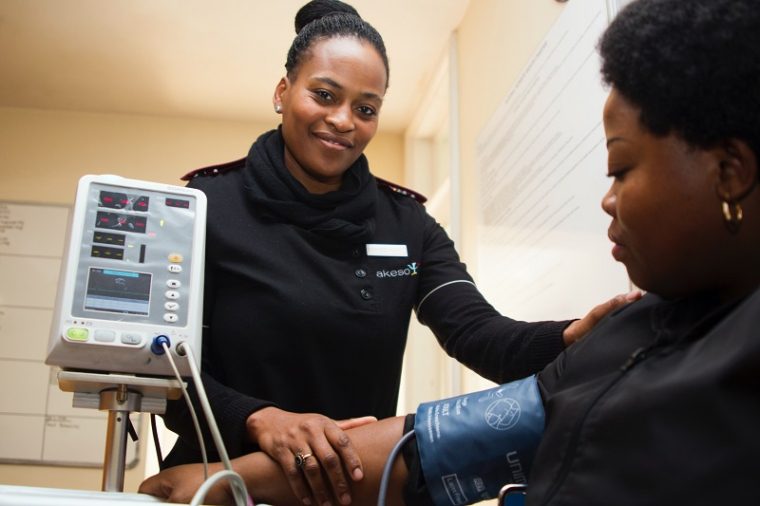Advancing Equity through Health Navigation was originally posted on FSG.org on January 26, 2022.
FSG & Sanofi began partnering on health equity before the start of the COVID-19 pandemic, and the journey is ongoing. We are sharing reflections from our journey in the hope that it may inform and inspire others to take action.
Sanofi, a global biopharmaceutical company, partnered with FSG in spring 2019 in developing its U.S. corporate social responsibility (CSR) strategy. We didn’t go into this exercise assuming we would center the work on health equity. Our goal was to explore how Sanofi could change the care experiences of those least served by the health system, across different disease areas. The process was informed by external research, lots of listening, and identifying gaps. The more we looked into it, of course, it became obvious to us that if we wanted to serve those most affected by health disparities, it would be by promoting health equity.
Systemic inequities, evidenced by disparities in health outcomes by race, ethnicity, and gender have been around long before COVID-19. Our first task was to identify which issue, among the many that affected health equity, Sanofi wanted to take on. Looking at the data on health disparities and speaking with practitioners led us to the topic of health system navigation. “Our health care system is so complex,” said one such expert, “that even doctors often have a difficult time navigating it.”
In one powerful moment during our engagement, Sanofi team members each read quotes from people who the health care system was failing—single mothers trying to get care for their children, African Americans whose complaints about pain were not heeded, and lower-income individuals trying to understand what coverage was available to them. The session helped us confirm the focus on health navigation.
The more we looked into it, of course, it became obvious to us that if we wanted to serve those most affected by health disparities, it would be by promoting health equity.
Even with that focus, however, the strategy couldn’t take on all aspects of navigation. We had to develop something that was authentic to Sanofi, ambitious in its vision—bolstering community-based health navigation—and feasible. We had to make choices.
- First, we decided that health equity would be a crosscutting theme for the social impact strategy rather than its own focus area.[1] This would help ensure the entire strategy, irrespective of the activity, geography, or partner, would be guided by the focus on equity.
- Second, we used john a. powell’s concept of targeted universalism[2] to discuss how a focus on specific populations—Blacks and Latinx, for example—could still create better health outcomes for all.
- And third, we used the data from our interviews and landscape scan to identify potential geographies and partners for Sanofi to engage.
It was important to Sanofi that employees see themselves as part of the solution and how the work they do every day can help drive outcomes. Since the strategy was developed, Sanofi launched SanofiActs, the company’s employee engagement hub that brings together all aspects of societal impact to drive employees to action. The portal houses modules on social impact, inclusion and diversity, total wellbeing, and environmental sustainability—each filled with interactive educational content and activities designed to create a workforce of purpose-driven employees. As of January 25, 2022, more than 4,400 employees have taken actions to make a difference in their communities.
The CSR team is continuing to create awareness about health equity among employees through innovative programming. Sanofi will be launching a new national partnership this year that will be tapping into the brainpower of its employees to design solutions on community-based equity and health navigation.
Two powerful insights have emerged for us through this process:
- A strategy like this can’t pretend to be all things to all people. While it’s tempting to want to solve many problems at once, in order to affect change you have to remain authentic and focused.
- And, it takes corporate assets beyond cash (human capital), to make a lasting difference.
In addition to our two organizations collaborating, the individual partnership between the authors was also important to this process. The two of us have very different identities, upbringing, and professional backgrounds. We didn’t always agree on everything during our engagement. But it’s that diversity of experience that made the process compelling and effective. What we do share is a desire to see companies intentionally incorporate social impact into their work, and a common vision for how data, strategic choices, and a structured process can help chart that unique path.
This work is not easy, but that shared passion goes a long way in building the trust and respect that is required to do the work.
When you see it working, it’s very rewarding.
[1] Another focus area for the strategy, for example, was supporting local community needs, in addition to navigation.
[2] Targeted universalism—introduced by Berkeley professor john a. powell of the Othering and Belonging Institute—sets universal goals for the general population that are accomplished through targeted approaches based on the needs of different groups.
Photo Credit: Hush Naidoo Jade Photography on Unsplash




